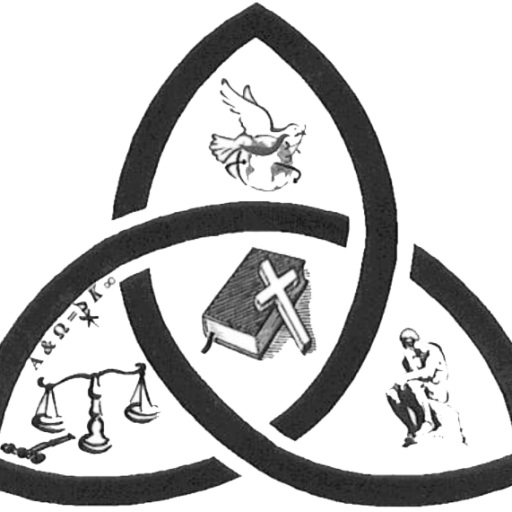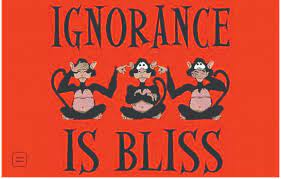The Learner
Well-Known Member
7. Jesus is therefore by nature God's Son, not God's creation or
God's servant; Jesus is God's Son who became a servant for our
sake and for the Father's glory (John 13:13-15; 17:4; Phil. 2:6-11;
Heb. 1:4-13; 3:1-6; 5:8; etc.).
I. Objections
1. Prov. 8:22: This text is not a literal description of Christ, but a
poetic personification of wisdom (cf. all of Prov. 1-9, esp. 8:12-21;
9:1-6), poetically saying that God "got" His wisdom before He did
anything - i.e., that God has always had wisdom.
2. Col. 1:15: Does not mean that Christ is the first creature, since
He is here presented as the Son and principal heir of the Father (cf.
vv. 12-44); thus "firstborn" here means "heir" (cf. Gen. 43:33;
48;14-20; Ex. 4:22; 1 Chron. 5:1-3; Psa. 89:27; Jer. 31:9); note that
v. 16 speaks of the Son as the Creator, nor creature (cf. E.1.
above).
3. Rev. 3:14: "Beginning" (archê) in Rev. as a title means source
or one who begins, i.e. Creator (cf. Rev. 1:8; 21:6; 22:13);
elsewhere Christ is called the archê in the sense of "ruler," Col.
1:18, cf. plural archai, "rulers," in Col. 1:16; 2:10, 15, also Luke
12:11; Rom. 8:38; Eph. 3:10; 6:12; Tit. 3:1; cf. Luke 20:20; Jude 6;
1 Cor. 15:24; Eph. 1:21.
4. 1 Cor. 11:3; 15:28: Jesus is still subordinate to God, but as the
Son to the Father; i.e., they are equal in nature, but the Son is
subordinate relationally to God.
5. John 20:17; Rom. 15:6; 1 Cor. 15:24; 2 Cor. 1:3; Rev. 1:6; 3:12:
Jesus calls the Father "My God" because He is still man as well as
God; note the distinction between "My God" and "your God" in
John 20:17 (i.e., Jesus never speaks of "our God" including
Himself with the disciples).
6. Mark 13:32: Jesus' statement that He did not know the time of
His return is to be explained by His voluntary acceptance of the
humble form and likeness of a man (Phil. 2:7); in fact Jesus, as
God, did know all things (John 16:30), and after His resurrection
He does not including Himself as not knowing (Acts 1:6-7).
7. Mark 10:17-18: Jesus does not deny being God, but simply tells
the man that he has no business calling anyone "good" in an
unqualified sense except God.
8. Heb. 5:14: Jesus was tempted, cf. James 1:13; but note that Jesus
could not sin, John 5:19.
9. John 1:18: No one has seen God, but men have seen Jesus, e.g. 1
John 1:1-2; but note that no man can see the glorified Jesus either,
1 Tim. 6:16, and to see Jesus is to see the Father, John 14:9.
10. 1 Tim. 1:17: God cannot die, but Jesus did, e.g. Phil. 2:8; but
note that no one could take Jesus' life from Him, He could not
remain dead, and He raised Himself: John 10:18; Acts 2:24; John
2:19-22.
11. 1 Cor. 8:6: Father called God, Jesus called Lord: but here
"God" and "Lord" are synonymous (cf. v. 5; cf. also Rom. 14:3-12
for a good example of "God" and "Lord" as interchangeable);
moreover, this text no more denies that Jesus is God than it does
that the Father is Lord (Matt. 11:25); cf. Jude 4, where Jesus is the
only Lord.
12. 1 Tim. 2:5: Jesus here supposedly distinct from God; but Jesus
is also distinct from (fallen) men, yet is Himself a man; likewise
Jesus is distinct from God (the Father), but is also God.
13. Deut. 4:12, 15-25; God not appear in a human form to Israel,
lest they fall into idolatry; but this does not rule out His appearing
in human form later after they had learned to abhor idolatry.
14. In many texts Jesus is distinguished from God: He is the Son of
God, was sent by God, etc.; in all these texts "God" is used as a
name for the person most commonly called God, i.e., the Father.
God's servant; Jesus is God's Son who became a servant for our
sake and for the Father's glory (John 13:13-15; 17:4; Phil. 2:6-11;
Heb. 1:4-13; 3:1-6; 5:8; etc.).
I. Objections
1. Prov. 8:22: This text is not a literal description of Christ, but a
poetic personification of wisdom (cf. all of Prov. 1-9, esp. 8:12-21;
9:1-6), poetically saying that God "got" His wisdom before He did
anything - i.e., that God has always had wisdom.
2. Col. 1:15: Does not mean that Christ is the first creature, since
He is here presented as the Son and principal heir of the Father (cf.
vv. 12-44); thus "firstborn" here means "heir" (cf. Gen. 43:33;
48;14-20; Ex. 4:22; 1 Chron. 5:1-3; Psa. 89:27; Jer. 31:9); note that
v. 16 speaks of the Son as the Creator, nor creature (cf. E.1.
above).
3. Rev. 3:14: "Beginning" (archê) in Rev. as a title means source
or one who begins, i.e. Creator (cf. Rev. 1:8; 21:6; 22:13);
elsewhere Christ is called the archê in the sense of "ruler," Col.
1:18, cf. plural archai, "rulers," in Col. 1:16; 2:10, 15, also Luke
12:11; Rom. 8:38; Eph. 3:10; 6:12; Tit. 3:1; cf. Luke 20:20; Jude 6;
1 Cor. 15:24; Eph. 1:21.
4. 1 Cor. 11:3; 15:28: Jesus is still subordinate to God, but as the
Son to the Father; i.e., they are equal in nature, but the Son is
subordinate relationally to God.
5. John 20:17; Rom. 15:6; 1 Cor. 15:24; 2 Cor. 1:3; Rev. 1:6; 3:12:
Jesus calls the Father "My God" because He is still man as well as
God; note the distinction between "My God" and "your God" in
John 20:17 (i.e., Jesus never speaks of "our God" including
Himself with the disciples).
6. Mark 13:32: Jesus' statement that He did not know the time of
His return is to be explained by His voluntary acceptance of the
humble form and likeness of a man (Phil. 2:7); in fact Jesus, as
God, did know all things (John 16:30), and after His resurrection
He does not including Himself as not knowing (Acts 1:6-7).
7. Mark 10:17-18: Jesus does not deny being God, but simply tells
the man that he has no business calling anyone "good" in an
unqualified sense except God.
8. Heb. 5:14: Jesus was tempted, cf. James 1:13; but note that Jesus
could not sin, John 5:19.
9. John 1:18: No one has seen God, but men have seen Jesus, e.g. 1
John 1:1-2; but note that no man can see the glorified Jesus either,
1 Tim. 6:16, and to see Jesus is to see the Father, John 14:9.
10. 1 Tim. 1:17: God cannot die, but Jesus did, e.g. Phil. 2:8; but
note that no one could take Jesus' life from Him, He could not
remain dead, and He raised Himself: John 10:18; Acts 2:24; John
2:19-22.
11. 1 Cor. 8:6: Father called God, Jesus called Lord: but here
"God" and "Lord" are synonymous (cf. v. 5; cf. also Rom. 14:3-12
for a good example of "God" and "Lord" as interchangeable);
moreover, this text no more denies that Jesus is God than it does
that the Father is Lord (Matt. 11:25); cf. Jude 4, where Jesus is the
only Lord.
12. 1 Tim. 2:5: Jesus here supposedly distinct from God; but Jesus
is also distinct from (fallen) men, yet is Himself a man; likewise
Jesus is distinct from God (the Father), but is also God.
13. Deut. 4:12, 15-25; God not appear in a human form to Israel,
lest they fall into idolatry; but this does not rule out His appearing
in human form later after they had learned to abhor idolatry.
14. In many texts Jesus is distinguished from God: He is the Son of
God, was sent by God, etc.; in all these texts "God" is used as a
name for the person most commonly called God, i.e., the Father.














